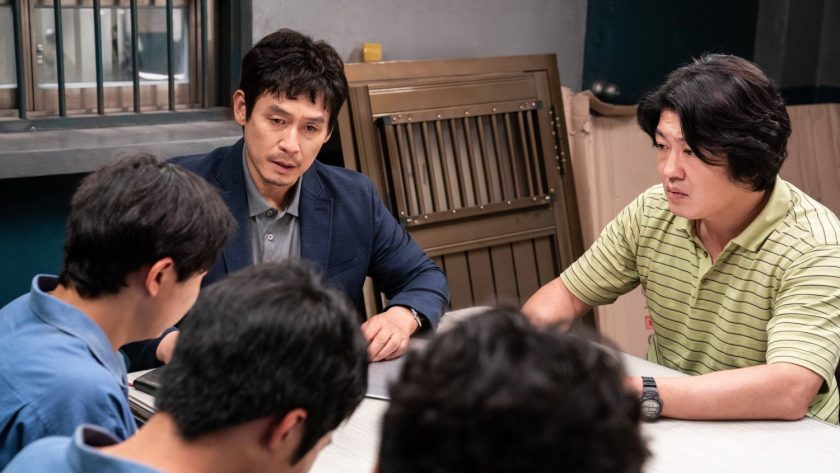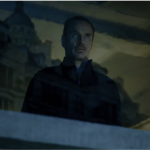London East Asia Film Festival 2023 returns to London with a diverse programme from East and Southeast Asia, including international and UK premieres.
Rebekah Chia review LEAFF 2023’s opening film, a crime drama following a police office on his quest to uncover the truth behind a notorious robbery case that resulted in three boys being sent to prison.
A murder is committed on February 6, 1999, in Wanju County, South Korea.
In the dead of night, three robbers break into Samrye Nara Supermarket. The ensuing chaos sees the owner’s elderly mother-in-law suffocate from some tape that was used to tie her up — turning a simple case of larceny into a homicide.
And yet history, as well as Director Chung Ji-Young’s latest film The Boys (2022), does not concern itself much with the specifics of whodunnit — we get to know, within the first third of the film, that the boys accused of crime are innocent — and is instead more interested in the murder mystery’s lesser-known cousin, the whydidtheyconfessanyway.
The answer to that is as horrifying to see on the silver-screen as it was to read in the newspapers.

This very fact is, morbidly, what I would consider to be the film’s greatest strength: that it sets out to make its audience angry, and does a pretty good job at it. The orderly, calm, and composed cinematography — next to Wanju’s blue skies, colourful streets, and serene, small-town, quiet — provides a sharp and uncanny contrast to the dark history that lurks beneath. Three young and vulnerable teenagers are brutally beaten, in an extended sequence that will make your skin crawl, all in the name of making the lives of the authorities slightly less inconvenient. You really start to feel for the boys and there is never any ambiguity as to who is in the wrong. The timeline also abruptly jumps from sinister abuses of power to light-hearted and cheerful interactions between friends, and it makes you sit with this jarring discomfort.
The incredible performances of its actors certainly contribute to that feeling. So does its sound design as simple foley effects amidst the silences of crucial conversations help to create an air of tension. Wanju’s quiet atmosphere grows less serene and more unnerving as time goes on. Personally, I preferred scenes without any backing music which I felt let me better soak in the carefully constructed soundscape, and put myself into the shoes of the film’s central characters. Those with dramatic music rising in the background felt distracting and made it harder to concentrate on the scene’s tension.
I’ve seen complaints that the non-linear timeline of the film might be confusing, although I found that jumping around helped to heighten suspense, and maintain investment in whatever happened in the 16 years between the first and second timeline. I do agree the narrative could have been tightened in some parts, and I would have preferred to see scenes lingered on for longer as, especially towards the end of the first timeline, some of them felt frustratingly short.

At any rate, the boys are, it turns out, guilty after all — of being poor, of being other, of being unable to defend themselves against the oppressive authority of a policeman who just wants a promotion. Not even the confessions of the real criminals, or the support of the victim of the crime herself, can save them from that guilt.
The theme of this year’s London East Asia Film Festival (LEAFF) is social justice.
Director Chung’s film about police brutality and the reliability (or lack thereof) of South Korea’s law enforcement opens the festival with a bang. Is justice ever truly served for the way that the boys were wronged? Arguably not really. But what they do get are small victories — an overturned verdict long after they’ve served their sentence, the remorse of one of the murder’s true culprits — and, in this world, that’s worth celebrating. The Samrye Nara Supermarket incident, renamed to the Woori incident in the film, is one of a string of high-profile cases in South Korea where wrongful convictions were made after suspects were beaten or threatened with violence into confessing. To bring the story to the big screen is calling this issue to international attention. As Chung himself says: “In short, for people who have authority in Korea, I am their public enemy number one.” In this sense, what he is doing is commendable. But it isn’t entirely solidarity and righteousness with The Boys.
“Powerful people pick on the weak when most people, who see themselves on the side of the weak, choose to stay silent”, Says Chung. What he fails to address is how the system itself both enables and inspires the powerful to do so. At the end of the day, his film is still asking you to place your trust in its central protagonist: a fictional police officer, who has also been dubbed the “Mad Dog” for the way he hunts his prey. In the first minutes of the film, he manhandles a suspect within his custody, which the film deems okay because the man is guilty. This is a sentiment that Detective Hwang himself echoes in one scene, when in response to the villain’s question (paraphrased from memory) “why is it that what we’re doing is so different from whatever you’ve done”, Hwang’s answer is somewhere along the lines of “well, I only beat guilty people.” But where exactly does one draw the line with such a declaration?
Irony aside, the concept of there being “good cops” who will rightfully stand against the bad eggs of a flawed system is a cinematic trick as old as time. In real life, there was no morally just police officer there to help the boys win their retrial. In The Boys we get a cliché: it’s not strictly the way that the system is structured that’s the problem, it’s the people who are in charge of it.
In a Q&A session both before and after the screening, Chung said that he considers himself more of a commercial film director than an art film director. The Boys aptly demonstrates what he means: it is a fun, emotional, fairly conventional film that touches on, and attempts to bring light to, an important social issue. But how well does it really engage with the topic, given both its wider social context and the fact that there was a real case behind the tragedy? In my opinion, maybe the fictional Mad Dog wasn’t so necessary.




